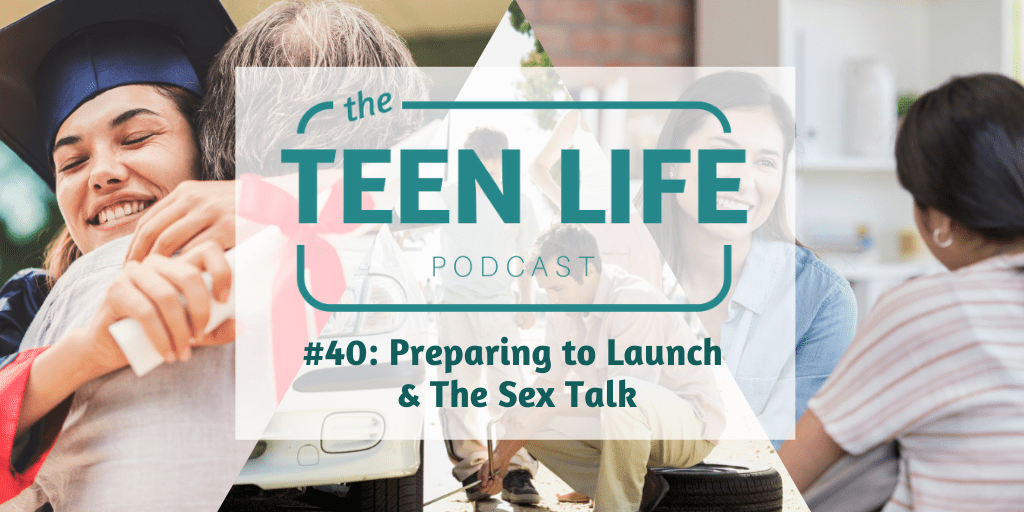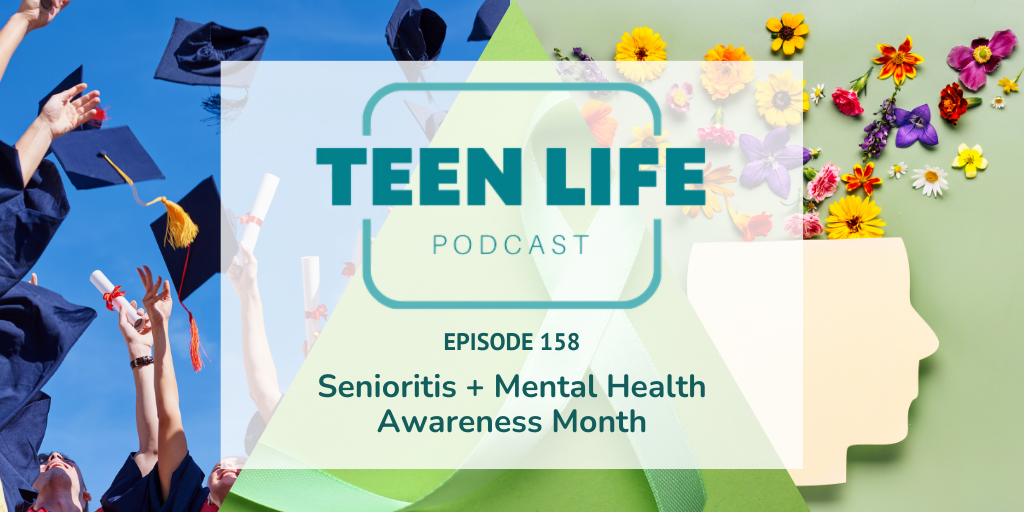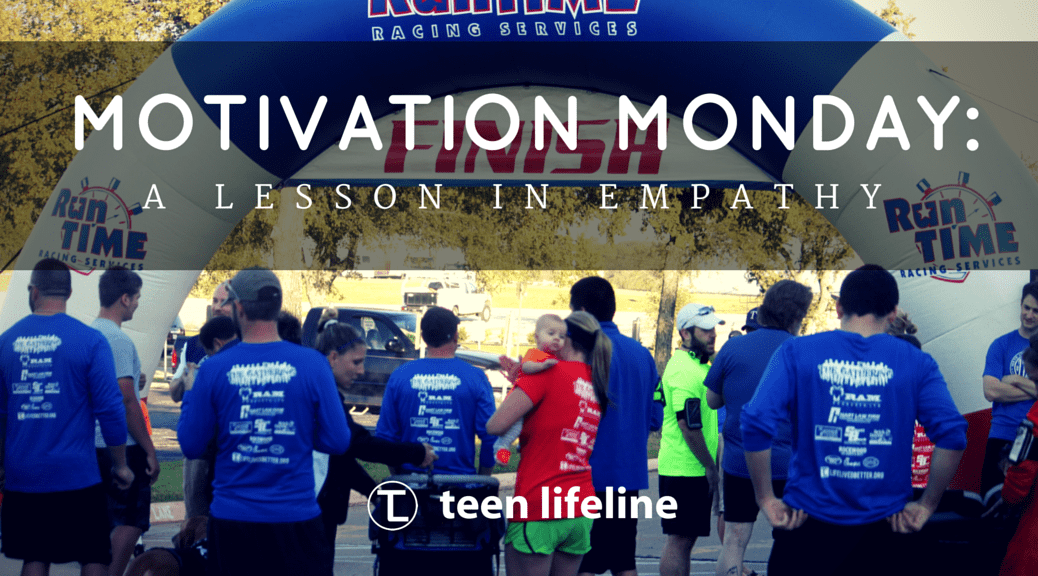
by Karlie Duke | Feb 1, 2016 | Anxiety, Events, Support Groups
We are less than 9 weeks away from our 7th annual #TL5K! In order to celebrate our biggest fundraiser of the year and bring awareness to what actually happens through Teen Lifeline Support Groups, we are going to release a bonus blog once a week until our 5K on April 2nd! These blogs will be a small glimpse into the stories of teenagers we work with and some of the facilitators who make these groups possible.
We are passionate about these groups because we get to see the faces, hear the stories and speak truth every single week. If you are just now getting introduced to Teen Lifeline or are wanting to know more about how we are helping teenagers live life better, these stories over the next 9 weeks are going to be a great way to take a behind-the-scenes peek at our non-profit.
I often get asked about our support groups and what a successful group looks like. You have no idea how tricky that question is…what does the perfect family look like? What are the characteristics of a perfect classroom? These questions are impossible to answer because…it depends.
It depends on the situation, the group of students, the needs of the group and the end-goal. Every single one of my groups is different, but one is not necessarily more successful than the others; however, there is one group in particular that comes to mind when I think of facilitating these support groups.
Last year, I was able to lead a middle school support group at an alternative campus (these are students who have been moved from there campus for one disciplinary reason or another). This being the first group I had ever led, I was nervous and a little (or a lot) anxious. I wondered how I would relate to these young trouble makers, if they would actually talk to me and how I would get them to connect with each other when they were more worried about video games and which boy liked them that week. Through the course of a school year, I saw over 36 middle schoolers in group, some that stayed with me for several months and some who were only there a couple of weeks.
In one particular g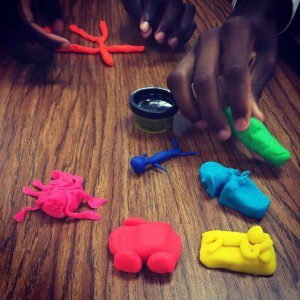 roup, we were talking about stress (by playing with play-doh, of course!), and one of the girls brought up her situation living in foster care. She talked about the stress of moving through different foster homes and new “siblings” that she was trying to get along with.
roup, we were talking about stress (by playing with play-doh, of course!), and one of the girls brought up her situation living in foster care. She talked about the stress of moving through different foster homes and new “siblings” that she was trying to get along with.
In this same group, I had a boy who sweet, brilliant, and very shy. He rarely spoke up in group, but as his peer talked about her fears and anxiety about home life, he stopped her and asked, “Are you okay? Do they ever hurt you?” He cut right to he chase (which made me a little nervous), but showed empathy in a way that was surprising for a middle schooler. Without me saying a word, these two started a conversation about getting help if she didn’t feel safe and how to deal with difficult family members. Even though I was the group facilitator, these two guided our group through discussion around dealing with stress and how to positively react when you are put in negative situations.
If I had to pick one thing, that would be my favorite characteristic of a successful group – when they reach out and encourage one another. Finding a connecting point with peers is huge, especially if you feel like you are on an island all by yourself. Our groups empower teenagers to seek out these relationships and let them know that they are not the only ones dealing with junk.
I am so thankful that I work for a ministry that allows these types of conversations to happen. A ministry that equips students to deal with stressful situations, encourages teens to open up and seek relationships, and empowers them to live their best life possible.
Karlie Duke was in one of Teen Lifeline’s original support groups and now is our Communications Director. She has lead support groups on two different campuses over the past two years.
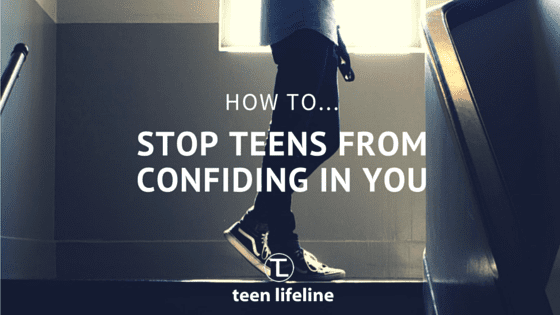
by Karlie Duke | Jan 28, 2016 | Parenting, Resources, Support Groups
One of my favorite parts of my job is getting to encourage teenagers to have meaningful relationships with adults. We talk about who they are close to and who they can go to for help. I love encouraging them to find adults that they can confide in and who will speak truth into their lives.
Unfortunately, when we talk about parents, teachers, and other adults, students often say something along the lines of, “I can never tell them anything because…(fill in the blank).”
Some of this can be attributed to those teenage years when many students want to separate themselves from adults as much as possible. However, there are also many adults who are acting (probably unintentionally) in a way that insures teenagers will never talk to them about anything serious/important.
Here are a few ways that you can make sure teenagers never confide in you:
Tell them that they are just being dramatic.
Teens have a flair for the dramatic – we know this. However, when they are sharing something important and personal, that is not the time to point out those dramatic tendencies.
If they are sharing feelings of depression or thoughts of suicide, always take that seriously. First, make them feel validated in their feelings, and then you can ask more questions to determine what the next step should be. I’m sure you would rather be on the safe side of believing them and getting help, rather than blowing it off and having to get help after something bad has already happened.
Be dramatic when they tell you something.
While you can’t tell them that they are being dramatic, you also cannot be dramatic in return. I have had many teens (especially guys) tell me that they don’t share things with their parents because they freak out, cry, ground them or “make them go to church and confess.” (A real student told me that).
I know it can be upsetting if your child tells you that they are pregnant or failing or on drugs or depressed, but you must remain shock proof in front of them! Later when you are alone, you can break down, but how are they supposed to trust you to help them if you can’t even handle what they are telling you?
Betray their confidence.
Hear me out on this – there is a difference between asking a professional, a minister or a good friend for help and gossiping to your friends about what a teen is going through.
If it is a matter of safety (they are hurting themselves or someone else, or someone is hurting them), then you need to report that conversation or get help. However, I once had a student tell me that after they spoke to a teacher in confidence, he overheard that teacher laughing about it with a few other teachers. I can guarantee you that he never chose to share personal information with that teacher again.
Don’t believe them.
As adults, sometimes it is easier to avoid the issue or pretend like they are lying rather than deal with the hard truth of what is going on.
Earlier this year, a teacher pulled me into a room with a high school girl who was already getting help from the district but needed someone to listen – and because I happened to be around, that person got to be me!
Sitting across from this girl who I knew nothing about, I told her that I just wanted to listen – without judgment or a miraculous answer to fix all of her problems. And then, I starting asking questions.
What is going on? How are things at home? How is your relationship with your mom?
And she started to open up! After only a few minutes, I discovered that her stepfather had sexually abused her. While the school was aware of this and taking the necessary steps to protect her, I got to ask about her heart and the state of her family. Unfortunately, she told me that she had shared this abuse with her mom, but her mom immediately took the stepdad’s side and discredited her story.
Through more questions, I learned that this high school girl was dealing with much more than past abuse – she was battling depression and having somewhat of an identity crisis – but she was very clear that she would never talk to her mom about anything like this again.
Typically when a teenager tells you something personal and important, what they need most is for you to believe them. They need you to listen and offer your encouragement that you will help them through whatever is going on – don’t take that for granted!
It can be hard to gain a teenager’s trust, but if you break it, it is nearly impossible to gain that trust back.
Be someone that a teenager can trust.
Listen.
Don’t judge or speak before you completely hear them out.
You would probably be surprised what I can get a teen to tell me in a 45-minute group. But this shouldn’t be surprising because they should be able to tell you the same things!
I am begging you, stop giving teenagers an excuse to stay closed off. Stop doing the things I’ve mentioned above and be an adult they can count on.
When this happens, come back and share your stories with us! They need more adults like you!
Check out the Stay Calm, Don’t Panic! Podcast episode called “Don’t Panic About Talking to Your Teen”
Karlie Duke was in one of Teen Lifeline’s original support groups and now is our Communications Director. She is passionate about encouraging students to live better stories.

by Karlie Duke | Aug 27, 2015 | Blog, Parenting, School
The teen years are a critical time to prepare for the future. So how can we help?
I love this time of year, the time when crayons are on sale and my newsfeed is filled with pictures of forced-smiling students in backpacks. Every year when August rolls around, I like to drag out my old pictures and reflect on all of my FDOS (First Days of School).
I think back to when I was in Kindergarten and was so excited to be in “big kid school” with my new backpack and friends, but I promptly fell asleep when I got home due to all that excitement.
I will probably never forget my first day of Middle School…the nerves and anxiety of wondering if I would remember my locker combination, who I would sit by at lunch, and if I would survive the mature and much cooler 8th graders. I do not look back on this day with super warm-fuzzys.
I definitely remember my first day of Senior year! This year came with fewer nerves and doubts. By this time, I knew what to expect and where I stood, so this FDOS was full of excitement, anticipation, and hope.
If we are being honest, as many FDOS as I had in elementary, middle, and high school, it is that first day (and week) of college that sticks out the most to me. Just like in kindergarten, I had a new backpack, new friends, and a brand new environment. I was missing home but was both nervous and excited for what the next four years would bring. However, more than anything else, I felt prepared; I knew that all the other “Firsts” were leading up to this big one.
5 ways to help teens prepare for the future…
As the first day of school comes and goes each year, whether you are a teacher, have a baby at home, just walked your kindergartener into their first class, or dropped your college student off in a strange town, your goal is for the students in your life to make it to that “Last First Day.” While supporting kids with the end in mind (hopefully that they will grow up, move on, and become successful adults), there are several things you can do to help them prepare for the future and the hardest part – the leaving.
1. Encourage and equip at every stage.
While we don’t want to force kids to grow up too fast, it is important that we also instill confidence from the time they step into elementary school to their last day of college. Don’t ever ask, “Do you really think you are ready for this?” If they feel prepared and that you are cheering them on at every step, that transition is so much easier!
If you do have questions about decisions or new stages they are entering, try asking things like:
- How are you feeling about ___?
- I can see you’ve been preparing for this! Walk me through your thought process.
- I am so proud of you! Is there anything I can do to help you?
2. Slowly release the reigns.
Kids need boundaries, especially the teenager types! However, they also need to begin to explore and regulate their boundaries before they are completely on their own. The goal is that the first time they are making their own choices and boundaries shouldn’t be when they are on their own, potentially without the guidance of trusted adults.
When they first get their car, make their curfew a little stricter than necessary so you can relax that limit as they approach their senior year. Give more responsibilities, show more trust, and pry less as they get older. Design lessons so that they have to show more responsibility to succeed. This shows that you trust them and allows them to excel (or fail) for the first time in a safe environment, not when are they living in a dorm room 1,000 miles away or starting their first job.
3. Ask about their hopes and dreams.
Ask students about their future and what they hope to accomplish in college, after college, and beyond. By doing this, you are encouraging them to think about their goals and what it will take to get there. I have yet to meet a teenager without a dream for their future, but this future can seem far away for the 6th grader who just wants to be popular or the junior in high school who can’t seem to pass Physics. Give them motivation now and the expectation that, one day, they will have their own plans outside of what their parents, coaches, and teachers have laid out.
4. Affirm and empower them to succeed.
At Teen Life, we believe that every teenager has gifts and strengths. They are capable of succeeding and thriving! You probably believe this too, but have you vocalized it to the teens in your life? As you make choices, design assignments, and set boundaries, communicate the “why” behind it. Tell them what you hope for their future and how you are trying to prepare them.
You can also speak positive affirmations over them like:
- You are good enough
- You are prepared
- It is okay to ask for help
- I believe in you
- I am proud of you
- You are a good person
The greatest way to help teens prepare for the future is to prepare yourself. Take pictures, cry as they drive themselves to school for the first time, and force them to participate in family game nights, but don’t lose sight of the dreams and goals you have for them. Parent with the end in mind, knowing that they will leave and that is good.
For our school people, you know all too well that the students in your classroom will move on every year. That doesn’t make it any easier though – especially when you feel particularly close to a group of students.
Instead of making them feel guilty for leaving you, send them off with the confidence and trust that they will excel because they are prepared.
The greatest work we can do now is to help teens prepare for the future. They are capable, strong, and brave. Don’t let them forget it!
Director of Communications
More Resources You Might Like

 roup, we were talking about stress (by playing with play-doh, of course!), and one of the girls brought up her situation living in foster care. She talked about the stress of moving through different foster homes and new “siblings” that she was trying to get along with.
roup, we were talking about stress (by playing with play-doh, of course!), and one of the girls brought up her situation living in foster care. She talked about the stress of moving through different foster homes and new “siblings” that she was trying to get along with.





